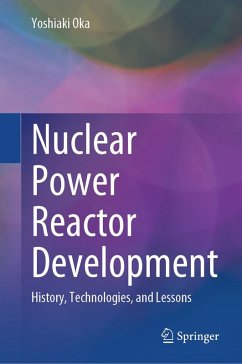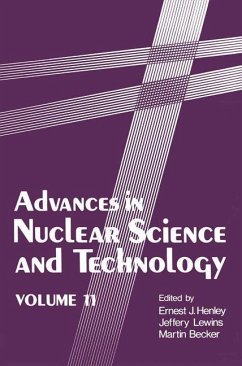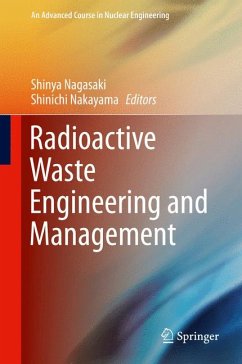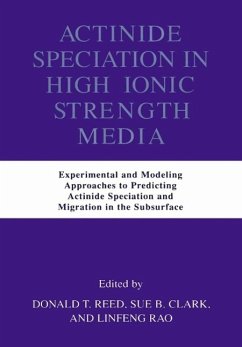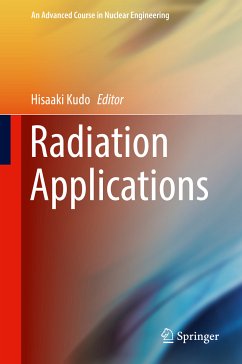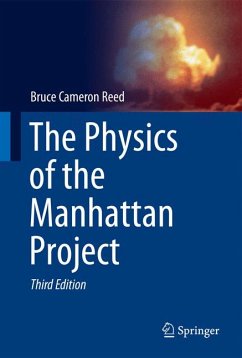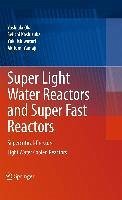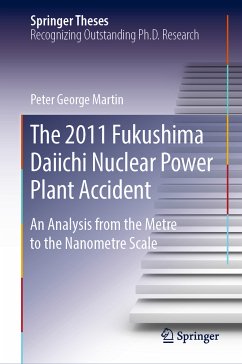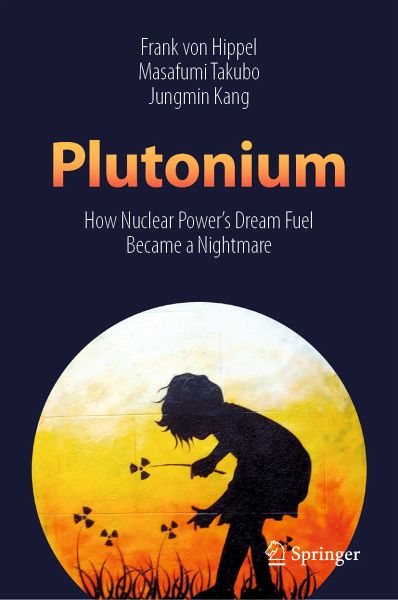
Plutonium (eBook, PDF)
How Nuclear Power's Dream Fuel Became a Nightmare

PAYBACK Punkte
11 °P sammeln!






Plutonium (eBook, PDF)
Dieser Download kann aus rechtlichen Gründen nur mit Rechnungsadresse in A, B, BG, CY, CZ, D, DK, EW, E, FIN, F, GR, HR, H, IRL, I, LT, L, LR, M, NL, PL, P, R, S, SLO, SK ausgeliefert werden.
Jungmin Kang is a member the International Panel on Fissile Materials and a consultant for Princeton University's Program on Science and Global Security and the Natural Resources Defense Council in Washington, DC. Kang received a Ph.D. in nuclear engineering from University of Tokyo, Japan, and M.S. and B.S. degrees in nuclear engineering from Seoul National University, South Korea. Kang worked in Princeton University's Program on Science and Global Security in 1998-2000 and Center for International Security and Cooperation, Stanford University in 2006-2008. Kang was a senior research fellow at the Natural Resources Defense Council in 2015-2017. Previously, Kang spent four years at the Korea Advanced Institute of Science and Technology in Daejeon, South Korea, as a visiting professor. During 2018, Kang served as the Chairman of South Korea's Nuclear Safety and Security Commission.
Frank von Hippel is Senior Research Physicist and Professor of Public and International Affairs emeritus at Princeton University. He has a Ph.D. in nuclear physics (1962) from Oxford University. He co-founded Princeton's Program on Science and Global Security and was founding co-chair of the International Panel on Fissile Materials from 2006-14. During 1993-4, he served as Assistant Director for National Security in the White House Office of Science and Technology Policy. In 1993, he received the MacArthur Foundation's "genius" award and, in 2010, the American Physical Society's Leo Szilard Award "for his outstanding work and leadership in using physics to illuminate public policy in the areas of nuclear arms control and nonproliferation, nuclear energy, and energy efficiency." He has worked on fissile material policy issues for over forty years.
Masafumi Takubo is a self-taught, Tokyo-based writer on nuclear-policy issues. He is a member the International Panel on Fissile Materials and a consultant for Princeton University's Program on Science and Global Security. He set up the Kakujoho.net (Nuclear Information) website in 2005 to provide Japanese policy makers, journalists and citizens, with timely, in-depth analysis and research tools related to nuclear issues. He publishes in several Japanese magazines, and taught a course on Peace Studies at Hosei University in Tokyo, Japan. Since 1975 he has worked with Gensuikin, the Japan Congress against Atomic and Hydrogen Bombs, in various capacities and helped organize numerous international conferences.
Frank von Hippel is Senior Research Physicist and Professor of Public and International Affairs emeritus at Princeton University. He has a Ph.D. in nuclear physics (1962) from Oxford University. He co-founded Princeton's Program on Science and Global Security and was founding co-chair of the International Panel on Fissile Materials from 2006-14. During 1993-4, he served as Assistant Director for National Security in the White House Office of Science and Technology Policy. In 1993, he received the MacArthur Foundation's "genius" award and, in 2010, the American Physical Society's Leo Szilard Award "for his outstanding work and leadership in using physics to illuminate public policy in the areas of nuclear arms control and nonproliferation, nuclear energy, and energy efficiency." He has worked on fissile material policy issues for over forty years.
Masafumi Takubo is a self-taught, Tokyo-based writer on nuclear-policy issues. He is a member the International Panel on Fissile Materials and a consultant for Princeton University's Program on Science and Global Security. He set up the Kakujoho.net (Nuclear Information) website in 2005 to provide Japanese policy makers, journalists and citizens, with timely, in-depth analysis and research tools related to nuclear issues. He publishes in several Japanese magazines, and taught a course on Peace Studies at Hosei University in Tokyo, Japan. Since 1975 he has worked with Gensuikin, the Japan Congress against Atomic and Hydrogen Bombs, in various capacities and helped organize numerous international conferences.
Produktdetails
- Verlag: Springer Nature Singapore
- Seitenzahl: 177
- Erscheinungstermin: 23. Dezember 2019
- Englisch
- ISBN-13: 9789811399015
- Artikelnr.: 58471259
"This book is highly recommended. The entire remarkable story of plutonium is told with crystal clarity and detailed scholarship, fully referenced with helpful end notes." (Gordon Edwards, Peace Magazine, Vol. 36 (3), 2020)
Für dieses Produkt wurde noch keine Bewertung abgegeben. Wir würden uns sehr freuen, wenn du die erste Bewertung schreibst!
Eine Bewertung schreiben
Eine Bewertung schreiben
Andere Kunden interessierten sich für


